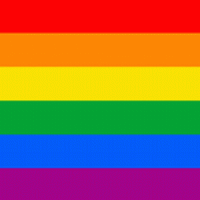Equal Rights (Not Special Rights) (1994)

©1994, 2013 by Dallas Denny
Source: Dallas Denny. (1994, April). Equal rights (not special rights): Letter to the editor. Mirror Images, pp. 1-2. Reprinted in TransSisters: The Journal of Transsexual Feminism (1994, Autumn), No. 6, pp. 6-7.
I wrote this letter in counterpoint to an essay by Kristine Holt. I sent it to the editor of Mirror Images, the newsletter of the Erie Sisters. where it appeared in the April, 1994 issue alongside Ms. Holt’s article. Later that year Ms. Holt’s piece appeared in issue No. 5 of Davina Anne Gabriel’s TransSisters magazine; my letter ran in the next issue.
9 March, 1994
Editor, Mirror Images
Erie Sisters
2115 West 8th St., Ste. 261
Erie, PA 16505
Dear Editor:
Kristine Holt was good enough to send me a copy of her essay “The Grande Alliance.” She mentioned it would be appearing in the March issue of Mirror Images. I would like to respond.
In her well-written essay “The Grande Alliance,” , Kristine Holt makes the point that transgendered persons should not ally themselves with the gay, lesbian, and bisexual (lesbigay) community because our issues are not sexual issues, but gender issues. She goes on to say we should seek alliances with the feminist women’s movement.
I wholeheartedly agree we should work with the women’s movement, and more than that, with the feminist men’s movement. But I could not disagree more that it is to our advantage to separate ourselves from the lesbigay community.
I don’t want this letter to turn into an essay, so I will briefly list a number of reasons why such an alliance is critical:
1. Turning our back on the lesbigay movement is a slap in the face to a significant minority, and perhaps even a majority, of the transgender community. Many of us do have sexual issues. In fact, sexual confusion at some point in our process is almost a hallmark of being transgendered. Many avowed heterosexual crossdressers feel like women when dressed and act upon those feelings at some point. Many post-operative transsexual persons (I’ve heard as many as one-third) identify as lesbians or as gay men. Others are bisexual. Furthermore, many people who identify as lesbigay are significantly transgendered.
2. The lesbigay community is engaged in a commendable and courageous struggle for human rights. For the first time in Western history, sexual minorities are asserting their right to live their lives as they choose without governmental or religious persecution. What they are demanding is freedom, and it is one of the principles upon which this country is founded. It is only moral and right to support them in their quest.
3. Lesbigay people are asking for the same sorts of things we are. We benefit from their hard-won gains: domestic partnership agreements, insurance coverage, durable power of attorney bills, hate crime laws. Their cause is our cause; heir struggle is our struggle. To pretend otherwise is purest folly.
3. We are all queer to Joe Lunchbox and his female counterpart, and we are actually more “queer” than the majority of lesbigay people, who keep their sexual preference private. Bashers do not politely inquire, “Pardon me, are you a heterosexual gentleman who likes to crossdress, or are you a gay man in drag?” before bringing their Louisville Sluggers into play—on us, ignoring the straight-acting gay men standing beside us. Those of us who are cross-living, and even those who are postoperative are seen by the general public as gay or lesbian regardless of whether our sexual partners are male or female. We will not make the general public aware of our differences until we are standing beside gay men and lesbians so the ways in which we differ will be apparent.
To borrow Marjorie Garber’s term, we have a vested interest in the struggle of lesbian, gay, and bisexual people, and much, much to gain by working together with them on the issues of human rights which concern us all. And we cannot support them at our convenience, as Ms. Holt suggests. We must support them all the way.
Sincerely,
Ms. Dallas Denny
Executive Director
American Educational Gender Information Service, Inc. (AEGIS)
